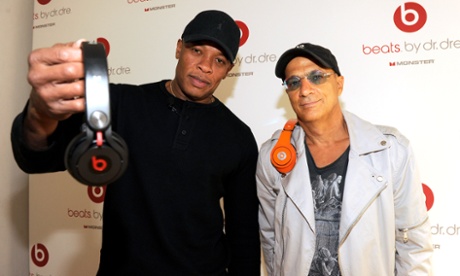Musicians are revolting. They’re rising up around the world to draw attention to the microscopic earnings they make from streaming. Songwriters, artists, players and producers of every kind have started scrutinising the industry, calling for reform, transparency, fairness and rights. It’s dead exciting.
You see, during lockdown, a chorus of freshly grounded musicians took to social media to share their stories of paltry remuneration. Using the hashtags #BrokenRecord and #FixStreaming, they and their fans turned the spotlight away from themselves and on to the industry. Four hundred masked orchestral players even took part in a recital-cum-protest in Westminster Square in central London on 6 October.
The noise got so loud it caught the ear of parliament: the digital, culture, media and sport select committee opened an inquiry into the fairness of the “streaming economy”.
The pandemic obliterated festivals and gigs, meaning we were forced to survive on streaming income alone. As a cocky northern lass, I thought I’d be OK: “C’mon Nadine, you’ll be all right, you’ve been nominated for a bloody Mercury prize, you’ve over 100,000 monthly Spotify listeners. You’ll make the rent.”
I was foolish. The situation was such that I temporarily had to move back in with my parents over the summer. Not the worst thing to happen, but still not a great look for a thirtysomething pop star. Like most of my musician friends who rely on gigs, I found myself in dire straits. (If only I actually were in Dire Straits.)
Streaming only really works for superstars and super record labels. Instead of receiving a direct amount per sale, as with downloads or physical purchases, it’s a “winner-takes-all” system. The way it works is the combined revenue of every streaming subscriber is divided by by “market share”. For example, suppose Bruno Mars releases an album and – rightly, because he’s amazing – Bruno appears on the surface of every phone, on every playlist, pushed by every algorithm. He could potentially end up with 5% of the whole world’s streaming money. Or, to be accurate, his record label will pocket that 5%. Bruno might see about 20% of that if, and only if, he’s repaid his recording costs. Pre-digital artists may be on pre-digital deals, so they may see nothing.
Even before Covid, the major labels were making almost $20m a day from streaming. And this year has seen a a huge increase in streaming subscriptions, as fans turn to platforms such as Apple Music and Spotify to help ease their locked-down minds. The three major music groups, Sony, Warner and Universal own about three-quarters of the music ever made so, by this system, they’ll pocket about three-quarters of streaming revenue every month. Independent or self-releasing artists share the rest.
For all the promise of digital democratisation of music, the opposite appears to be happening. For an independent artist with a dedicated audience, the system doesn’t work. And neither does it work for loyal fans. If you are a dance fan, jazz fan, or metal fan, the artists you love and listen to are unlikely to see a penny of your subscription.
Streaming is the future, but to deliver a rich and culturally diverse musical future, non-mainstream music needs to be able to keep its head above water. This is especially true as radio and TV continue to morph into streaming platforms. A playlist on the BBC Sounds app doesn’t pay performers in the way the same song on BBC radio would.
What can we do to fix it? Last week, I appeared beside Guy Garvey of Elbow, Ed O’Brien of Radiohead and Tom Gray of Gomez, to give evidence in front of the DCMS inquiry. It was terrifying. Music and politics rarely come face to face. Musicians are supposed to rail against politicians, not testify in front of them. But now we’re asking the government to intervene and correct the streaming market where it’s failing.
Guy, Ed, Tom and I suggested the government grant musicians rights to income from streaming, so they can earn a percentage from every stream regardless of the system. The same is already true of TV and radio broadcasts, so it’s hardly a revolutionary idea. It works well. The government could also look into the market dominance of the major music companies.
One much-debated remedy the committee of MPs seemed interested in is changing the way the streaming economy pays. Making it “user-centric” rather than based on market share. So, if you listen to jazz, your money would go to the people who create, produce and distribute jazz music. Sounds fair?
Music needs to be wild and varied, it needs to be inventive and original, and it needs to be economically sustainable. Streaming, as it currently is, provides less than a trickle for the workers who make it. Reform is needed so it can grow into a river from which the musicians of today and tomorrow can drink.
• Nadine Shah is a Mercury prize-nominated singer-songwriter. Her most recent album is Kitchen Sink











